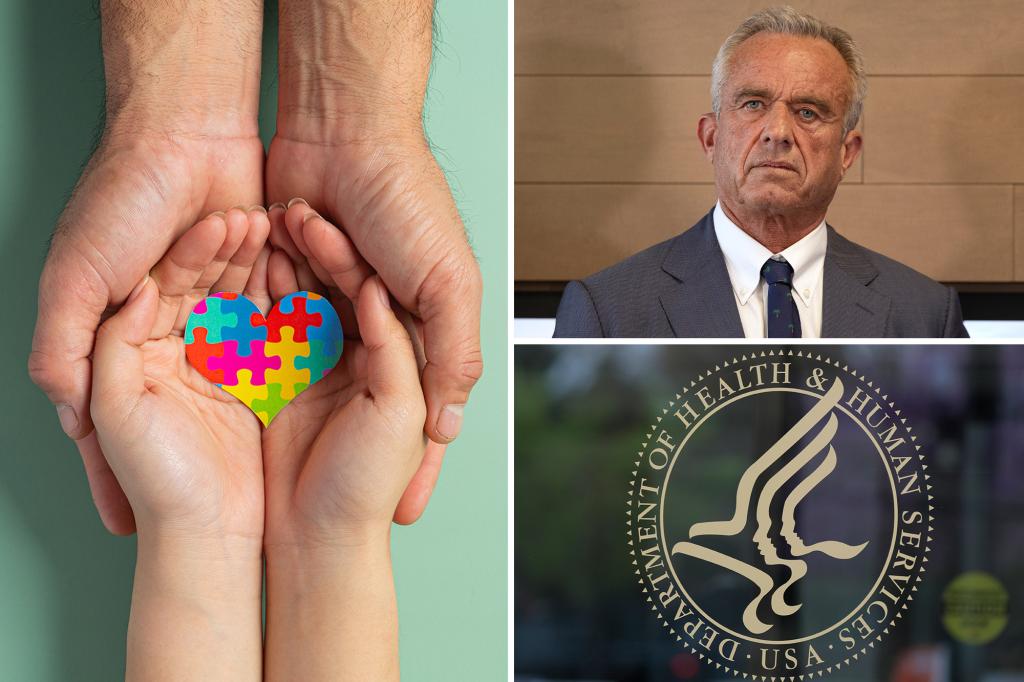RFK Jr. Unveils Ambitious Initiative to Investigate Autism Causes by September
Robert F. Kennedy Jr. announced a sweeping federal initiative this week, spearheaded by the Department of Health and Human Services (HHS), to identify the root causes of autism spectrum disorder (ASD) through accelerated research and testing. The project, slated for completion by September, aims to address what Kennedy calls a “national health crisis” affecting 1 in 36 U.S. children. The multi-phase plan will consolidate existing studies while launching new investigations into genetic, environmental, and immunological factors.
The Scope of the Autism Research Initiative
The HHS-led initiative will allocate $50 million in initial funding to prioritize three key areas: prenatal environmental exposures, vaccine safety data, and metabolic biomarkers linked to ASD. Researchers from the NIH, CDC, and academic institutions will collaborate under tight deadlines, with preliminary findings expected by late summer. Kennedy emphasized the urgency, citing a 317% increase in autism diagnoses since 2000.
“For too long, families have been given conflicting explanations,” Kennedy stated at a press conference. “This isn’t about assigning blame—it’s about using rigorous science to deliver answers.” The initiative will re-examine controversial topics, including:
- Heavy metal toxicity and its impact on neurodevelopment
- Maternal immune activation during pregnancy
- Gut-brain axis abnormalities in children with ASD
Expert Reactions and Controversies
While advocates like the National Autism Association praised the initiative’s “all-hands-on-deck” approach, some scientists urge caution. Dr. Evelyn Chen, a pediatric neurologist at Johns Hopkins, noted: “Autism is multifactorial. Isolating causes requires years of longitudinal studies—not just months.” Meanwhile, vaccine safety groups applauded the inclusion of adjuvants like aluminum in the research parameters.
Critics argue the timeline is unrealistic. “You can’t fast-track science,” countered Dr. Mark Phillips of the American Academy of Pediatrics. “But if this accelerates funding for understudied areas like environmental toxins, it’s a net positive.” A 2022 JAMA Pediatrics study found that children in high-pollution areas had a 22% higher ASD risk, lending weight to environmental hypotheses.
What the Science Says So Far
Current research points to a complex interplay of factors. The CDC acknowledges that while genetics account for 74–93% of ASD cases, environmental triggers may influence severity. A landmark 2023 study in Nature identified 134 genes strongly linked to autism, but epigenetic modifications—changes in gene expression from external factors—remain poorly understood.
Kennedy’s initiative will also analyze data from the CDC’s Vaccine Safety Datalink, a move that has reignited debates. “Transparency is paramount,” said biochemist Dr. Lisa Randall. “If vaccines play zero role, let’s prove it conclusively and restore public trust.”
Families Demand Action Amid Rising Rates
For parents like Maria Gonzalez, whose 7-year-old son is nonverbal, the initiative brings cautious hope. “We’ve been told ‘it’s just bad luck’ for years,” she said. “But when you see clusters of autism in certain communities, you know there’s more to it.”
Data supports her concerns: Autism rates in New Jersey (1 in 32) are significantly higher than the national average, suggesting regional environmental influences. The HHS plans targeted geographic studies in such hotspots.
Next Steps and Long-Term Implications
Phase one begins in April with a systematic review of 10,000+ existing studies. By July, the NIH will enroll 5,000 families in a genetic and environmental exposure registry. While the September deadline may yield only partial answers, Kennedy vows ongoing funding until “every stone is turned.”
Advocates stress that even incremental discoveries could improve early interventions. “Imagine identifying a preventable risk factor during pregnancy,” said Alison Singer of the Autism Science Foundation. “That’s the holy grail.”
Call to Action: Families impacted by ASD can share their experiences via the HHS’s public portal (www.hhs.gov/autismresearch) to inform study priorities.
See more WebMD Network



